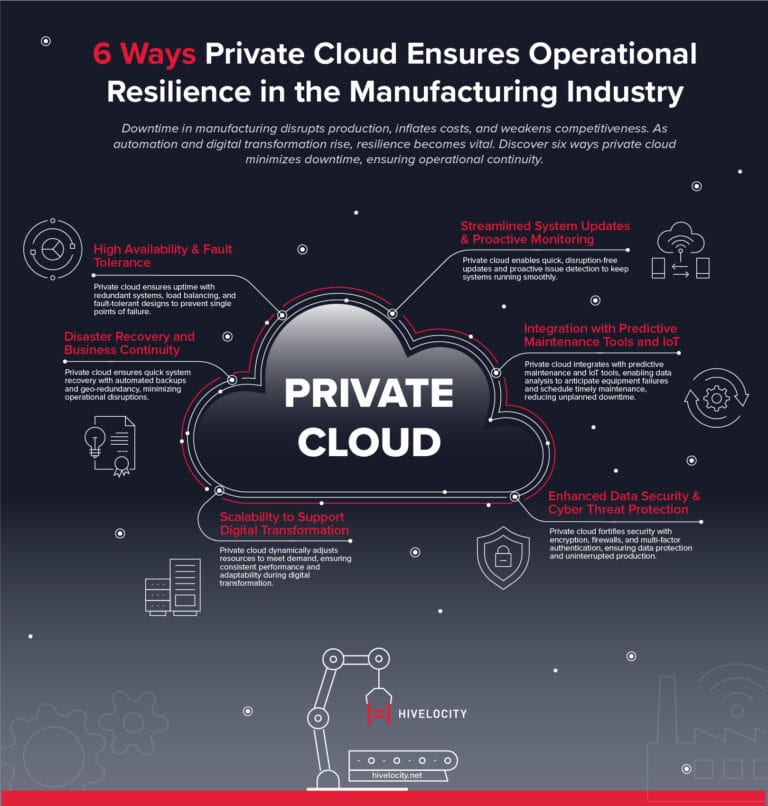
Optimizing Enterprise Cloud Across Operating Systems
Enterprise cloud environments provide businesses with unparalleled control, security, and performance. However, the effectiveness of an enterprise cloud can vary based on the operating system (OS) used. Linux, Microsoft, Unix, BSD, and even macOS each bring distinct capabilities to enterprise cloud deployments. Understanding how enterprise clouds perform with these systems and tailoring strategies to their strengths can unlock maximum value for your organization. Let’s take a look at the differences between the operating systems with use case examples.
Enterprise Cloud on Linux
Linux is a leading choice for enterprise clouds due to its flexibility, cost-effectiveness, and extensive ecosystem.
Example Use Case: DevOps Workflows
A software development company uses a Linux-based enterprise cloud with Kubernetes for managing containerized applications. OpenStack powers their enterprise cloud, while automation tools like Ansible streamline infrastructure-as-code. This setup offers rapid scalability and seamless integration with CI/CD pipelines.
Strengths
• Scalability: With tools like Kubernetes and OpenStack, Linux-based enterprise clouds can handle diverse workloads.
• Cost Efficiency: Linux distributions like CentOS Stream and Ubuntu are free to use, reducing operational expenses.
• Community Support: The vast Linux community provides resources, plugins, and troubleshooting options.
Challenges
• Complexity: Expertise is required for configuring and maintaining Linux environments.
• Diverse Ecosystem: Choosing the right distribution and tools from a myriad of options can be overwhelming.
Enterprise Cloud on Microsoft Windows Server
Microsoft’s enterprise cloud solutions integrate deeply with their enterprise ecosystem, making them ideal for businesses already invested in Microsoft technologies.
Example Use Case: Enterprise Application Hosting
A healthcare organization uses Microsoft Azure Stack HCI to run electronic health record (EHR) systems. With Hyper-V virtualization, their enterprise cloud ensures compliance with strict regulatory standards and provides reliable uptime for mission-critical applications.
Strengths
• Enterprise Synergy: Works seamlessly with Microsoft apps like SQL Server and Active Directory.
• Hybrid Readiness: Azure Stack HCI enables organizations to extend workloads to Azure when needed.
• Ease of Management: Admin-friendly interfaces and tools like System Center simplify cloud management.
Challenges
• Licensing Costs: Recurring fees for Microsoft products can increase total costs.
• Vendor Lock-In: Heavy reliance on Microsoft tools can limit flexibility.
Enterprise Cloud on Unix
Unix remains a trusted system for organizations prioritizing reliability and performance for specialized applications.
Example Use Case: Financial Transactions
A global bank leverages a Unix-based enterprise cloud to process high-frequency trading algorithms. With UNIX’s stability, the system ensures consistent uptime and rapid transaction speeds.
Strengths
• Stability: Unix systems are renowned for their reliability, even under demanding workloads.
• Efficiency: High-performance capabilities make Unix ideal for database management and transaction-heavy applications.
• Security: With a minimalist design, Unix is less prone to vulnerabilities.
Challenges
• Legacy Constraints: While stable, Unix lacks the modern toolchain support that Linux offers.
• Cost: Licensing and hardware-specific dependencies can be expensive.
Enterprise Cloud on BSD
BSD (Berkeley Software Distribution) is a niche choice for enterprise clouds, often used in specialized scenarios requiring security and scalability.
Example Use Case: Web Hosting
A mid-sized web hosting provider uses FreeBSD to power their enterprise cloud for hosting virtual private servers (VPS). FreeBSD’s ZFS file system ensures reliable data replication and backup capabilities.
Strengths
• File System Innovation: ZFS offers advanced storage features like snapshots and compression.
• Security: Features like jails (containerization) make BSD highly secure.
• Networking Excellence: BSD’s networking stack is robust, enabling high-performance connections.
Challenges
• Community Size: Smaller community support compared to Linux.
• Compatibility: Limited adoption means fewer third-party tools and integrations.
Enterprise Cloud on macOS
While macOS is not a conventional choice for enterprise clouds, it excels in creative and specialized workflows.
Example Use Case: Creative Studios
A media production company uses macOS-based enterprise clouds to host video rendering and editing software. macOS provides the perfect ecosystem for running Final Cut Pro and integrating seamlessly with other Apple devices.
Strengths
• Ecosystem Integration: Works seamlessly with macOS applications and Apple hardware.
• Ease of Use: Intuitive interface and user experience.
• Creative Tools: Optimized for design, video editing, and other creative workflows.
Challenges
• Scalability: macOS lacks robust tools for scaling cloud environments.
• Cost: Apple hardware can be expensive, limiting adoption.
Choosing the Right OS for Your Enterprise Cloud
Selecting the best operating system for your enterprise cloud depends on several factors, including:
- Workload Requirements: Linux excels in flexibility, while Microsoft is ideal for enterprise applications. Unix and BSD shine in performance-critical roles.
- Budget: Open-source systems like Linux and BSD are cost-effective, while macOS and Microsoft may require higher investments.
- Ecosystem Integration: Consider existing tools and workflows.
Enterprise cloud performance varies across Linux, Microsoft, Unix, BSD, and macOS, but each system has its unique strengths. Tailoring your enterprise cloud deployment to leverage these strengths can unlock unparalleled control, security, and efficiency for your business.
Learn more about the difference between enterprise cloud and public cloud


